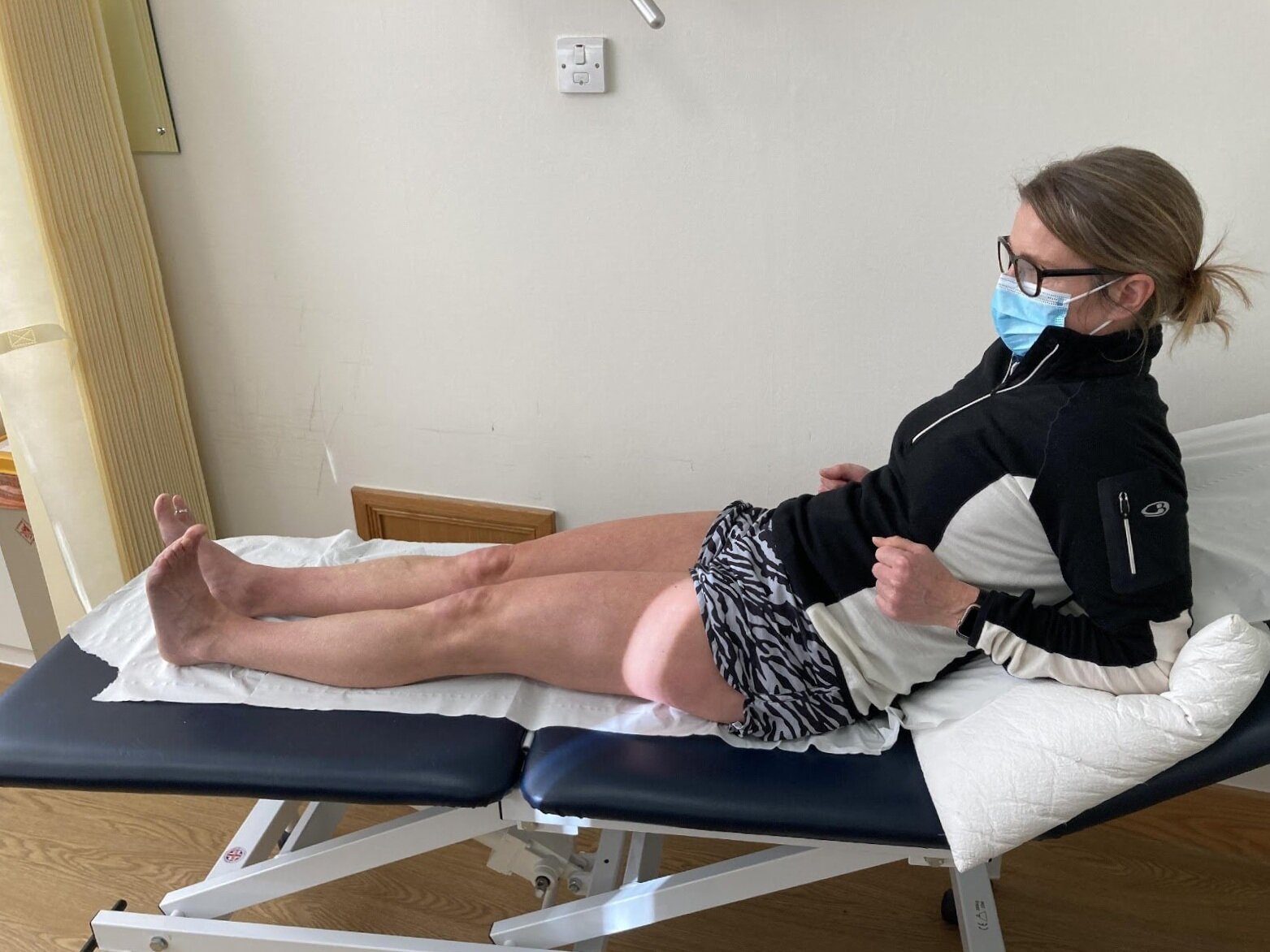Physiotherapy
Physiotherapy is of great value in both preventing and delaying the need for surgery. It is also incredibly important in the preparation for any surgery as well as in the recovery from your knee replacement. Physiotherapy for the knee concentrates on the conditioning of the muscles and tendons that surround and support the knee. Increased strength, movement and proprioception help the joint feel more stable and can decrease the pain that is experienced.
The following exercises can be used in both the pre and post-operative period to improve the function of the knee.
1. Contraction of the thigh muscles and buttocks
Sit with your leg extended in front of you. With the leg straight try and pull your toes towards you. Contract your quadriceps muscle for 30 seconds and then relax. Squeeze buttock muscles tightly, hold for 5 seconds.
Contraction of the thigh muscles and buttocks 10 repetitions, 3 x per day.
2. Knee flexion on bed
Start in a lying position, bring your leg from an extended position drawing your heel towards your buttock. This can be aided with the use of a tray under your heal.
Knee flexion on bed: 10 repetitions, 3 x per day.
3. Passive knee extension
Place rolled towel under the heel so the knee is unsupported and straight. Hold for 5 mins.
Passive knee extensions : 10 repetitions, 3 x per day.
4. Straight leg raises
With your leg straight, pull the foot up, brace the knee to lock it straight. Raise 15cm and lower in a controlled manner.
Straight leg raises: 10 repetitions, 3 x per day.
5. Heel lifts/ Inner Range Quads
With rolled towel under the knee, pull the foot up, raise the heel and straighten the knee. Raise and lower slowly.
Heel lifts : 10 repetitions, 3 x per day.
6. Knee bends in the chair (video)
Sitting in your chair, slide your heel as far as you can underneath you. Use the other leg to help if necessary.
7. Mid-range quads in chair
In sitting, pull the foot up, raise heel off the floor to straighten knee. Keep thigh in contact with the chair.
Mid range quads in chair : 10 repetitions, 3 x per day.
8. Walking with crutches
a) Two crutches:
Crutches go forwards together
The operated leg goes next, placing foot between the crutches
Step through with the non-operated leg, as you would with normal walking
b) Using one crutch, held in opposite hand to operated leg:
The crutch and operated leg go forward together
Then step through with the non-operated
9. Stairs
You will be taught to manage stairs by a member of the physio team. Always use a bannister rail if there is one, and hold the stick or crutch in the other hand.
Going up stairs: Lead with the unoperated leg first, followed by the operated leg and then the stick or crutch.
Going down stairs: put the stick or crutch on the step below, then step down with the operated leg, followed by the unoperated leg.










